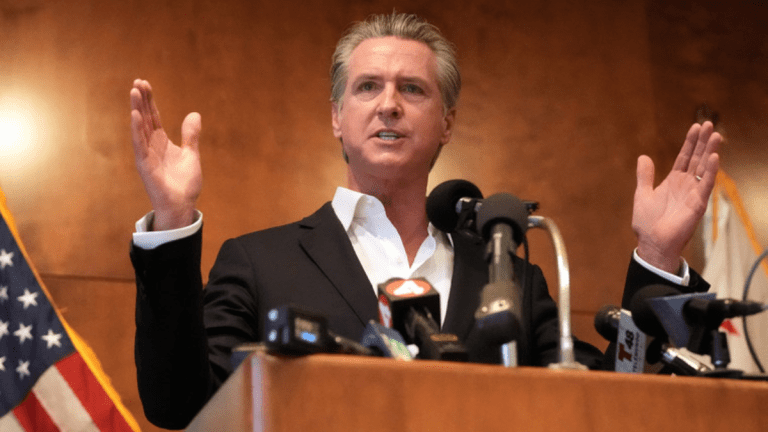
🕒 Last updated on November 11, 2025
Tension rose in Brazil on Monday as California Governor Gavin Newsom sharply criticized President Donald Trump and his administration for not attending a major climate conference. Speaking at the Milken Institute’s Global Investors’ Symposium, Newsom expressed frustration that the United States did not send any representatives to the event — not even, as he said, “a note-taker.”
The gathering was part of the larger climate discussions taking place in Brazil, where world leaders, investors, and environmental experts met to address the global climate crisis. The talks focused on cooperation to reduce emissions, protect forests like the Amazon, and promote cleaner energy sources. Most major nations sent senior officials, but the U.S. government under President Trump chose not to attend.
Newsom told attendees that this absence was more than a scheduling issue — it was, in his words, a show of “disrespect” to both Brazil and the international community. He stressed that leadership requires being present, even if only to listen and learn. His remarks drew strong reactions from the audience, many of whom applauded his call for greater U.S. engagement in global climate action.
U.S. Absence Sparks Global Reaction
The Trump administration’s decision not to participate in the Brazil conference caused disappointment among international delegates. Nearly 200 countries have gathered in Belém for the ongoing United Nations climate summit, known as COP30, where discussions center on curbing pollution and preventing global temperatures from rising to dangerous levels.
Newsom strikes climate deal with Brazil after Trump calls climate change a con job
The absence of the United States — one of the world’s largest economies and top sources of carbon emissions — stood out. Many global leaders noted that U.S. participation is critical for achieving real progress in international climate efforts. Newsom echoed this sentiment, warning that sitting out of such events weakens America’s influence in shaping future policies and could cost the nation valuable economic opportunities in clean energy and innovation.
While President Trump’s federal government has stepped back from global environmental negotiations, Newsom highlighted that U.S. states like California remain deeply involved. California, known for its strong environmental standards, continues to lead in renewable energy, electric vehicles, and green manufacturing. Newsom said this commitment shows that parts of the U.S. are still taking climate action seriously, regardless of federal decisions.
California Steps Up in Brazil
During his visit, Governor Newsom met with Brazilian officials, business leaders, and environmental advocates to strengthen partnerships focused on clean energy and forest preservation. He emphasized that Brazil’s natural resources, especially the Amazon rainforest, are essential to the planet’s health and to sustainable global development.
Billboards, backlash, and $7 gas — Newsom scrambles to save image amid refinery shutdowns
At the symposium, Newsom described the U.S. absence as a “missed opportunity” by President Trump’s administration. He said that by refusing to engage, the federal government had turned away from a chance to collaborate with nations that are pushing for urgent environmental solutions. His comments underscored the widening divide between federal and state leadership on climate policy.
The event in Brazil gained global attention, not only because of Newsom’s criticism but also for highlighting California’s growing role in international climate diplomacy. His presence contrasted sharply with the federal government’s silence. For many in Brazil and abroad, it signaled that while Washington may have stepped back, parts of America are still willing to show up and contribute.
Newsom’s remarks quickly spread through international media, framing his visit as both a show of frustration and a message of determination. At a moment when world leaders gathered to address urgent climate challenges, the governor’s speech served as a reminder that global cooperation — and American participation — remain vital in tackling the shared threat of climate change.